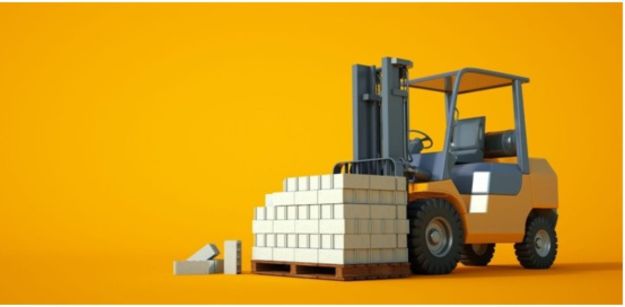Every operation, big or small, relies on precise measurements to ensure the smooth flow of goods. Forklift scales have emerged as indispensable tools in this landscape, offering the ability to weigh loads on the go without the need for separate weighing stations.


If you’re considering investing in a forklift scale, you’re on the right track to optimise your material handling processes. However, before you make a purchase, several crucial factors must be considered.
A Guide to Buying a Forklift Scale
1. Types of Forklift Scales
The first step in choosing the right forklift scale is understanding the different types available in the market. There are primarily two types to consider:
- Hydraulic Forklift Scales: These scales use hydraulic pressure to measure the weight of a load. They are known for their durability and precision. Hydraulic scales are suitable for heavy-duty applications and are resistant to harsh environmental conditions.
- Load Cell Forklift Scales: Load cell scales rely on strain gauges to measure weight. They are more compact and easier to install compared to hydraulic scales. Load cell scales are ideal for applications where accuracy is crucial, but the forklift operates in a controlled environment.
2. Weight Capacity
It’s essential to choose a scale that can handle the maximum weight of the loads you’ll be lifting. Exceeding the scale’s capacity can lead to inaccurate measurements, equipment damage, and safety hazards. It’s a good practice to choose a forklift scale with a capacity slightly higher than your maximum load to ensure accuracy and safety.
3. Power Source
Forklift scales typically rely on one of the following power sources:
- Battery-Powered Scales: These scales use rechargeable batteries, offering flexibility and portability. Battery-powered scales are ideal for forklifts that may not have easy access to electrical outlets. However, you’ll need to ensure that the batteries are charged regularly to prevent downtime.
- Wired Scales: Some forklift scales are hardwired to the forklift’s electrical system. While they don’t require battery maintenance, they may be less flexible in terms of installation and mobility.
4. Accuracy
Accuracy is paramount when it comes to forklift scales. Small measurement errors can lead to significant issues in inventory management, shipping, and billing. Look for scales that offer high accuracy and precision. The accuracy of a forklift scale is typically expressed as a percentage of full-scale capacity, such as ±0.1% or ±0.2%.
Additionally, consider the readability of the scale. The readability is the smallest increment by which the scale can display weight. A scale with finer readability can provide more precise measurements. However, remember that higher readability often comes at a higher cost.
5. Installation and Compatibility
The ease of installation and compatibility with your existing forklift are crucial factors to consider. Some forklift scale uses require complex installation processes, while others can be easily retrofitted onto your existing equipment. Retrofitting is usually a cost-effective option, as it allows you to upgrade your forklift without investing in a new one.
Ensure that the forklift scale you choose is compatible with your specific forklift model. If you’re unsure, consult with the scale manufacturer or a qualified technician to determine compatibility and installation requirements.
6. Calibration and Maintenance
To maintain accuracy, forklift scales require regular calibration. Some scales may offer user-friendly calibration procedures, while others may require professional calibration services. It’s essential to understand the calibration requirements of the scale you choose and factor them into your maintenance schedule.
Routine maintenance is also crucial to keep your forklift scale in optimal condition. This includes inspecting load cells or hydraulic components, checking wiring and connections, and cleaning the scale’s components as needed.
7. Cost and Return on Investment (ROI)
While cost is a significant factor, it should not be the sole determinant in your decision-making process. Consider the long-term benefits and return on investment (ROI) that a forklift scale can provide. A more accurate and efficient material handling process can save costs, improve productivity, and reduce product waste.
Evaluate the total cost of ownership, including the initial purchase price, installation costs, maintenance expenses, and potential downtime. A higher-quality scale with better accuracy and durability may offer a higher ROI in the long run.
8. Legal Compliance
In many industries, weighing accuracy is subject to legal regulations and standards. Ensure that the forklift scale you choose complies with the relevant local and national regulations. Non-compliance can lead to fines, legal issues, and damage to your business’s reputation.
Conclusion
Investing in a forklift scale is a strategic decision that can significantly enhance the efficiency and accuracy of your material handling processes. Remember that a forklift scale is not just an expense but an investment in the future of your business. Choosing the right scale can streamline your operations, improve inventory management, reduce errors, and ultimately contribute to the success and profitability of your organisation.
So, to ensure reliability in your forklift, choose scales or load cells from a reputable brand. Consult Meltrons Australia to learn about the most suitable weighing system for your needs!



